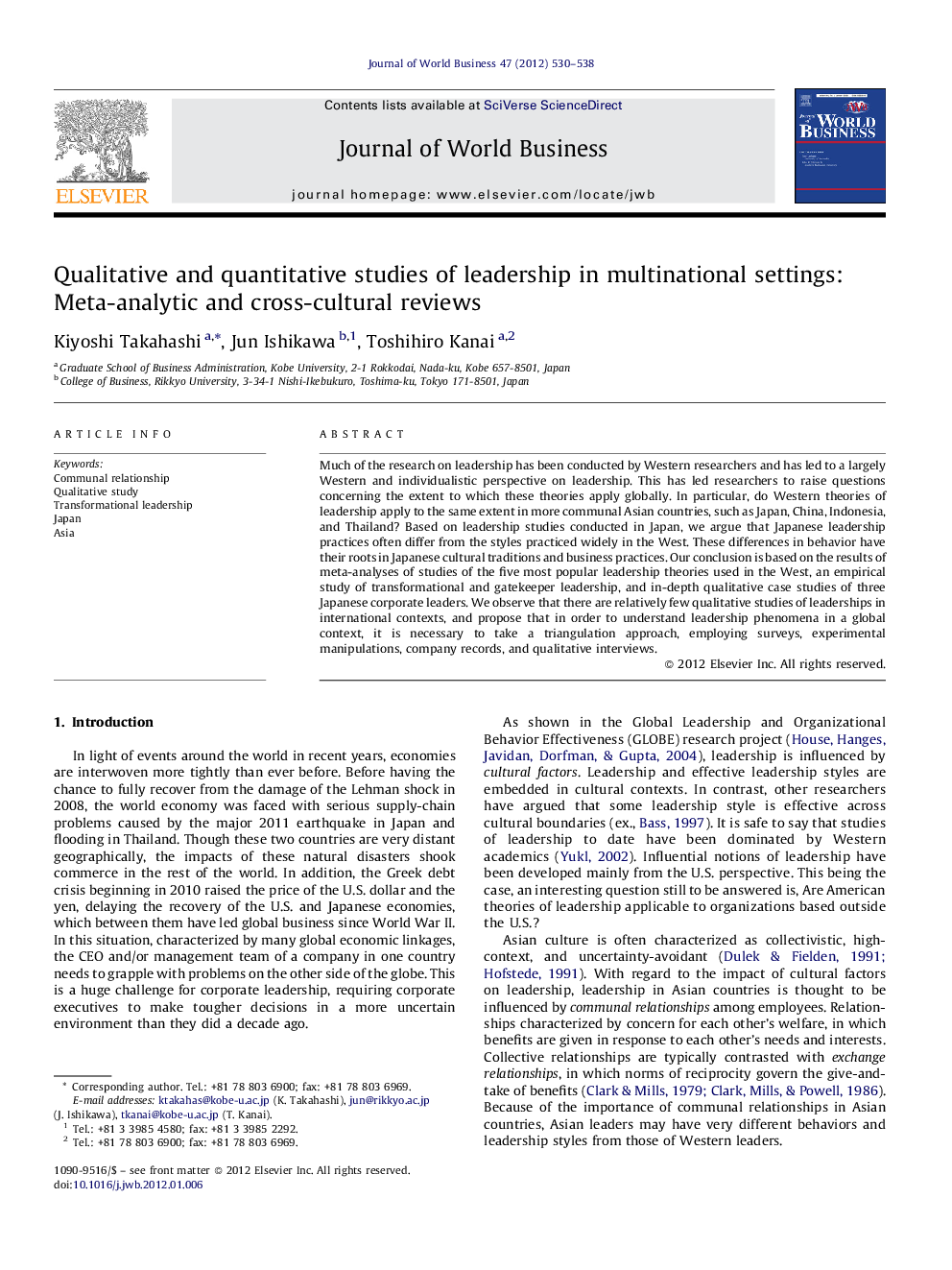| Article ID | Journal | Published Year | Pages | File Type |
|---|---|---|---|---|
| 1001540 | Journal of World Business | 2012 | 9 Pages |
Much of the research on leadership has been conducted by Western researchers and has led to a largely Western and individualistic perspective on leadership. This has led researchers to raise questions concerning the extent to which these theories apply globally. In particular, do Western theories of leadership apply to the same extent in more communal Asian countries, such as Japan, China, Indonesia, and Thailand? Based on leadership studies conducted in Japan, we argue that Japanese leadership practices often differ from the styles practiced widely in the West. These differences in behavior have their roots in Japanese cultural traditions and business practices. Our conclusion is based on the results of meta-analyses of studies of the five most popular leadership theories used in the West, an empirical study of transformational and gatekeeper leadership, and in-depth qualitative case studies of three Japanese corporate leaders. We observe that there are relatively few qualitative studies of leaderships in international contexts, and propose that in order to understand leadership phenomena in a global context, it is necessary to take a triangulation approach, employing surveys, experimental manipulations, company records, and qualitative interviews.
